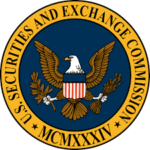A former CFTC chairman is urging that a new authority be established to bring clarity to digital asset regulation.

J. Christopher Giancarlo
Two of the major overseers of financial markets — the SEC and the CFTC — appear to be in a bureaucratic tug-of-war when it comes to the regulatory oversight of emerging digital assets, and former CFTC Chairman J. Christopher Giancarlo is proposing that the agencies work together to co-create a crypto bureau.
In addition, an ISITC panel discussion last month touched on the tug-of-war between the CFTC and SEC. The panel, “Key Themes of the Regulatory Landscape for Digital Assets,” was part of industry standards group ISITC’s Winter conference.
Giancarlo, now a senior counsel for law firm Willkie Farr & Gallagher LLP, revealed his proposal Jan. 4 at a virtual event, “Blockchain in the Beltway, Crypto at the Capitol: A technology juggernaut and its policy implications,” sponsored by the American Enterprise Institute (AEI), based in Washington, D.C. He says he discussed the establishment of a crypto bureau with lawmakers before he stepped down.
At the AEI event, Giancarlo criticized the Biden administration for “a defensive and reactionary” approach while touting the CFTC’s ushering in of a fully regulated market for bitcoin-based futures.
“Today, I’d like to continue my advocacy of a regulatory embrace of innovation … In fact, I think we’re in a fight for the future of money,” Giancarlo said during his introduction. He drew a comparison between America’s aging and deteriorating infrastructure, which has fallen behind other national efforts, and financial markets. “Well, sadly the same is true for much of our financial infrastructure.”
However, the innovation that is coming with emerging digital assets will be expressed via the forthcoming third wave of the Internet/World Wide Web, the so-called Internet of Value. This wave will likely disrupt many financial services, including securities trading and operations, Giancarlo says. He further argues that it is naïve to think that the digital transformation of money will not happen.
“In fact, it’s already happening,” says Giancarlo, who cites the onset of Stablecoins as an example of a digital asset that can help firms cut transaction costs and time because they are decoupled from traditional operational systems.
Yet unlike previous Internet waves led by the public sector, the private sector is driving the Internet of Value phase. “Sadly, Washington’s response to financial innovation this time around is a far cry from the earlier ‘First do no harm.’ Rather, it appears to be ‘First, preserve the status quo,’ ” Giancarlo says.
The former chairman cites the Biden administration’s working group on financial markets — overseen by the U.S. Treasury Department — which recently offered an initial policy response to Stablecoins.
“Overall, the report is highly defensive and reactionary, focused more on what could go wrong rather than what could go right, if innovation is properly channeled. It fails to declare any national imperative to harness digital asset innovation to upgrade our creaky exclusive, financial system to expand inclusiveness and lower costs for future generations. In my view, it’s a missed opportunity,” Giancarlo says.
FTF News reached out to Treasury Department officials for comment but there was no immediate response before the deadline.
 As for the roles of the regulators, Giancarlo says that during his five years with the CFTC, he learned that among other political realities was the fact that the U.S. Senate Committee on Agriculture, Nutrition, and Forestry will always run the CFTC and vie with the U.S. Senate Committee on Banking, Housing, and Urban Affairs Banking, which oversees and runs the SEC.
As for the roles of the regulators, Giancarlo says that during his five years with the CFTC, he learned that among other political realities was the fact that the U.S. Senate Committee on Agriculture, Nutrition, and Forestry will always run the CFTC and vie with the U.S. Senate Committee on Banking, Housing, and Urban Affairs Banking, which oversees and runs the SEC.
“That goes down to agricultural powers in the Midwest and banking powers on the Coast and those dividing lines are societal and they go deep and neither side is going to yield,” he says.
As for which regulator should oversee digital assets, Giancarlo offered his own solution.
“So, the CFTC got out in front of this first and now the SEC seems to have the baton,” Giancarlo says. “But that battle is not going away. The SEC is not going to run with this, the CFTC is not going to yield. This is a long-term thing.
“So, before I left the CFTC — in a long conversation I had with House leadership at the time — I came up with an idea which is still germinating,” Giancarlo says. “Instruct the two agencies to do something they haven’t yet done before but there’s the basis for it and that is to take the ad hoc cryptocurrency working group that I and [former SEC Chairman] Jay Clayton created … and develop it into a bureau, a crypto bureau, which would have joint parentage – of the SEC and the CFTC – but it would have its own authorization, its own financing coming from the two committee structures.”
The crypto bureau would have “sort of a commission structure formed from the two agencies but then a head who would be independently nominated by the president, confirmed by the Senate, that would be the crypto czar,” Giancarlo says. “It would take from the CFTC its longstanding mandate for innovation … But it would also take from the SEC its mandate for consumer protection, for disclosure, for registration.”
The new bureau would take the lead but would include roles for other regulators.
“At the end of the day, you can’t have multiple regulators,” says Giancarlo, adding that, “We absolutely need self-regulation alongside federal regulation.”
For the moment, there is a standoff between the CFTC and the SEC although, initially, industry participants perceived a good working relationship between the two when it came to the regulation of digital assets, says ISITC panelist Jackson Mueller, director, policy, and government relations at Securrency, which is developing a platform for digital asset-based financial transactions.
But that initial perception has changed.
“That relationship seems to have been strained a bit,” Mueller says. “When you think of the SEC Chairman Gary Gensler’s comments in early August [2021] at the Aspen Security Forum where he basically said a lot of this activity in this space whether it be trading, lending, facilitation of payments, really looks like securities. … But at the same time, you also heard right out of left field the former and current commissioners and chairman of the CFTC saying, ‘Well, wait a minute, you don’t have sole jurisdiction over this, right?’ ”
In fact, Brian Quintenz, a now-former CFTC commissioner, argued shortly after Gensler’s remarks that SEC has no inherent authority to govern digital/cryptocurrency-based assets.
“So, now you’re kind of getting into a tug of war between the SEC and CFTC on this, rather than what I would have hoped would have been a little bit more of cohesive relationship. And I think that is troubling from an industry standpoint just trying to figure out where do I go in this, how do I navigate this,” Mueller says.
The panelists discussed the need for a broader framework that would address certain pain points with digital assets and would involve, in addition to the SEC and CFTC, the FDIC, the Office of the Comptroller of the Currency (OCC), and the Federal Reserve.
Improved coordination among the regulators would help with the longtime bifurcation between capital markets and commodities, the consumers that want seamless trading across platforms facilitated by regulation, and the overall lack of clarity on the enforcement front, says Christine Parker, a partner with Reed Smith, who was on the ISITC panel.
In the past, Parker notes that Gensler and industry participants worked together to reform the regulation of commodities during the Dodd-Frank era. Many were hoping that that would serve as a blueprint for digital assets.
“What we’ve seen, unfortunately [from Gensler via SEC ] is really, sort of regulation by enforcement,” Parker says. “As a lawyer trying to advise my clients, I’m literally, sort of, parsing feelings. You know, it’s like, they’re going after exchanges for offering [coin-inspired] securities. Which ones and why? What were the features that made them securities?”
There is a lack of clarity in terms of the characterization of digital assets and which regulatory regimes they fall under, Parker says. And regulators need to come together fast because the rate of change for digital asset markets is outpacing them.
“But what happens in the interim? That’s going to take a number of years,” Parker says.
 FTF News reached out to the SEC and CFTC for comment. Both regulators declined to comment upon whether there is a turf battle underway between them.
FTF News reached out to the SEC and CFTC for comment. Both regulators declined to comment upon whether there is a turf battle underway between them.
However, a representative for the SEC referenced Gensler’s testimony before the Senate Banking Committee in September, which included a discussion of the coordination in oversight with the CFTC
“Right now, large parts of the field of crypto are sitting astride of — not operating within — regulatory frameworks that protect investors and consumers, guard against illicit activity, and ensure for financial stability,” according to Gensler’s testimony.
“Currently, we just don’t have enough investor protection in crypto finance, issuance, trading, or lending. Frankly, at this time, it’s more like the Wild West or the old world of ‘buyer beware’ that existed before the securities laws were enacted. This asset class is rife with fraud, scams, and abuse in certain applications. We can do better,” Gensler says.
Need a Reprint?